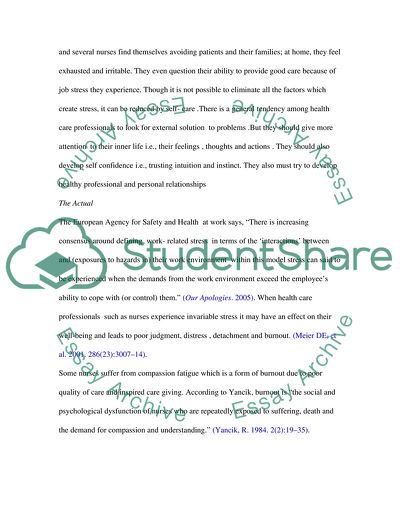Cite this document
(Work Place Stress of Nurses While Giving Care to Critically Ill Coursework, n.d.)
Work Place Stress of Nurses While Giving Care to Critically Ill Coursework. https://studentshare.org/nursing/1707624-nursing-leadership-and-management
Work Place Stress of Nurses While Giving Care to Critically Ill Coursework. https://studentshare.org/nursing/1707624-nursing-leadership-and-management
(Work Place Stress of Nurses While Giving Care to Critically Ill Coursework)
Work Place Stress of Nurses While Giving Care to Critically Ill Coursework. https://studentshare.org/nursing/1707624-nursing-leadership-and-management.
Work Place Stress of Nurses While Giving Care to Critically Ill Coursework. https://studentshare.org/nursing/1707624-nursing-leadership-and-management.
“Work Place Stress of Nurses While Giving Care to Critically Ill Coursework”. https://studentshare.org/nursing/1707624-nursing-leadership-and-management.


